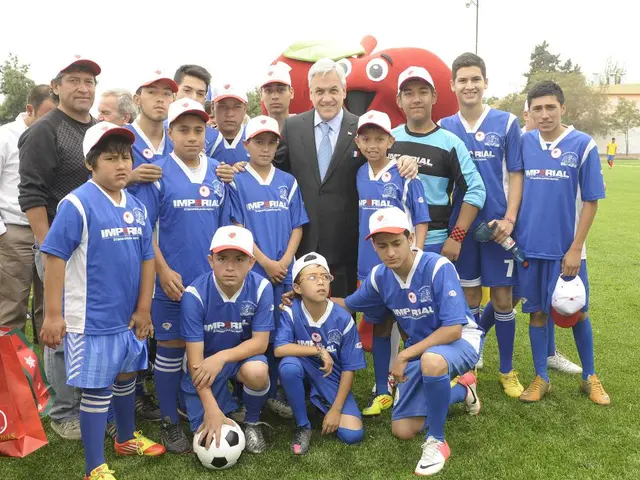Increased dumping fees: Understanding the reasons behind the hike and its impacts on businesses
Garbage Wars: A Critical Look at Russia's Waste Reform
Ever since the waste reform kicked off in 2019, the Russian garbage game has been a mess. Regional operators, handling the collection of solid municipal waste (MSW), have felt the brunt of public discontent due to quality issues and skyrocketing fees. Businesses, too, have felt the squeeze, reporting less-than-satisfactory payment rates for waste services.
The first two years were a battlefield, littered with unpaid bills, dubious invoices, and container collapses. Even the Russian Environmental Operator (REO), created in 2019 to oversee the reform, couldn't seem to sort out the mess quickly. Fast forward to 2022, and regional operators called for rule changes in waste calculation norms and tariffs - all in vain.
From 2019 to 2024, the collection rate for MSW payments in Russia increased by 18.4 percent, reaching 96.1 percent. However, consumer dissatisfaction persists due to relentless tariff hikes, predicted to surge by another 10-12 percent as of July 1. Meanwhile, regional operators grapple with inadequate cost indexing.
Yet, while federal-level tariffs climb, things aren't much better in the regions. Many are stingy with tariff increases due to fear of social upheaval. Operators' costs are instead subsidized from various budgets, creating a curious fiscal conundrum in waste management.
Insights:- Waste management in Russia grapples with limited public awareness and participation in waste management practices, regulatory challenges, and inadequate infrastructure and funding.
Stagnant Containers, Stuck Operators
In the ongoing battle against waste, regional operators face daunting challenges, such as spiraling diesel fuel and freight transport costs. Transport and handling make up approximately 55 percent of the tariff structure. Spare parts have become exorbitantly expensive, leading to premature equipment renewal, while wages have skyrocketed.
Even the elusive, qualified garbage truck drivers demand sizable salaries, well beyond the tariff's reach. Meanwhile, skilled technicians and sorters - a necessity for modern waste management facilities - are in high demand across industries, with even high-tech sorting facilities in the Moscow region unable to offer competitive remuneration.
Insights:- Skilled labor shortages, wage increases, and rising costs for diesel fuel and freight transport pose significant challenges to regional operators in Russia's waste management sector.
Square Feet or People? The Great Disagreement
The debate rages on about the proper basis for calculating waste disposal fees in Russia. Options range from calculating based on people registered in an apartment to square meters and even allowing citizens to pay based on the actual volume of waste generated.
Most regions rely on the number of people registered in a dwelling for waste fee calculations. However, Moscow residents, Petersburgers, and multi-apartment building residents in some regions pay based on their square meters of living space. These residents have seen waste disposal costs increase by an average of only 18 percent over five years.
Insights:- There's widespread disagreement in Russia about the best method to calculate waste disposal fees, with options ranging from basing fees on the number of people in a dwelling to square meters and even allowing payment based on the actual volume of waste generated.
The Ghost in the Machine
Tourists and labor migrants make up a significant waste contributor in many regions, yet their impact isn't adequately accounted for in waste fee calculations. Referred to as "ghost residents," they live in properties where no one is officially registered. In the Moscow region, for instance, over two million unregistered residents live there.
On the flip side, in some cases, housing units sit empty for extended periods, reducing the waste contribution of officially registered residents but leaving the waste management costs unaffected.
Insights:- The issue of "ghost residents" and vacant housing units has emerged as a challenge in waste management, as they contribute to waste generation but aren't adequately accounted for in waste fee calculations.
When Will the Trash Fire Die Down?
The war on waste in Russia is far from over. The tariff is just the tip of the iceberg in a vast, unstable waste management system. Transparent data remains elusive, leaving decision-making shaky at best. In 2019, the REO aimed to digitize the waste management system, but implementation had its pitfalls, including software glitches, data transmission problems, and legislative hurdles to obtaining personal data.
The accounting system will contribute to solving part of the waste issue by providing accurate data on waste generation and composition. However, another part of the solution lies in waste management itself. At the moment, tariffs seem insufficient to cover regional operators' costs, and the gap will only widen as waste management requirements increase. Ultimately, either service costs will rise, or state subsidies will be required to sustain the industry.
Insights:- Adequate compensation for market participants' waste management costs is essential for maintaining a sustainable industry, with options including tariffs and state subsidies. However, a bias towards either could lead to issues within the industry's economy.
The regional operators might welcome a new approach in sports-like competition to streamline waste management operations and reduce costs, similar to how teams strive for efficiency and collaboration in sports.
As the summer season approaches, the urgency for a solution becomes apparent, considering the weather's significant impact on waste generation and the prospect of increased waste during the holiday season.








